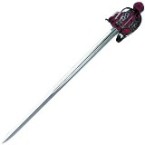Core concepts that should not be changed (in my very humble opinion):
- The scale should be variable, not fixed, with a bias towards "larger" scenario scopes (not necessarily large scenario sizes - it´s important to keep narrative flow going). People want to feel that they are impacting history, directing grand sweeps, etc.
- One unit per hex. Nuff said. Not worried about this one though.
- Snappy, responsive interface. Really important for the "feel" of the game.
- The PG1 naval / air system.
Concepts from AG and onwards (and other games) that could enhance the PG1 experience:
- Leaders. One of the best concepts from PG2. Preferably handled with little randomness (you get a fixed number throughout the campaign, plus perhaps an extra one for good performance). Adds a little RPG flair to the game, that personalizes your army and makes you feel more "powerful", always a good thing in these games.
- Some limits on equipment availability. We all love our all-King-Tiger army, but it feels more satisfying if you build it over time, instead of just going to town on the shopping as soon as the "available" status on a piece of equipment turns on. Also gives the game a (slightly) more "real" feel. Don´t laugh.
- Unit upgrades. People´s general made it possible to "pimp" your units a little extra, which made for good fun, and a more personalized army. Also, the ability to buy experience for new units with prestige meant that losing units later in the campaign was not an automatic case of "reload last save".
- Keeping the number of "core units" a bit lower than PG. A somewhat smaller core army with more customization options is preferable to having the sometimes unwieldy core army sizes of PG, imho.
- Tactical battles. The player should be able to play out all battles either as tactical engagements in the Close Combat engine, alternatively as a single soldier in the Call of Duty World at War engine. This makes the player connect with the action in a completely new way! The orignal Panzer General really limited the player in this regard, forcing him to focus on the strategic layer, instead of shooting his enemy in the face up close and personal.








